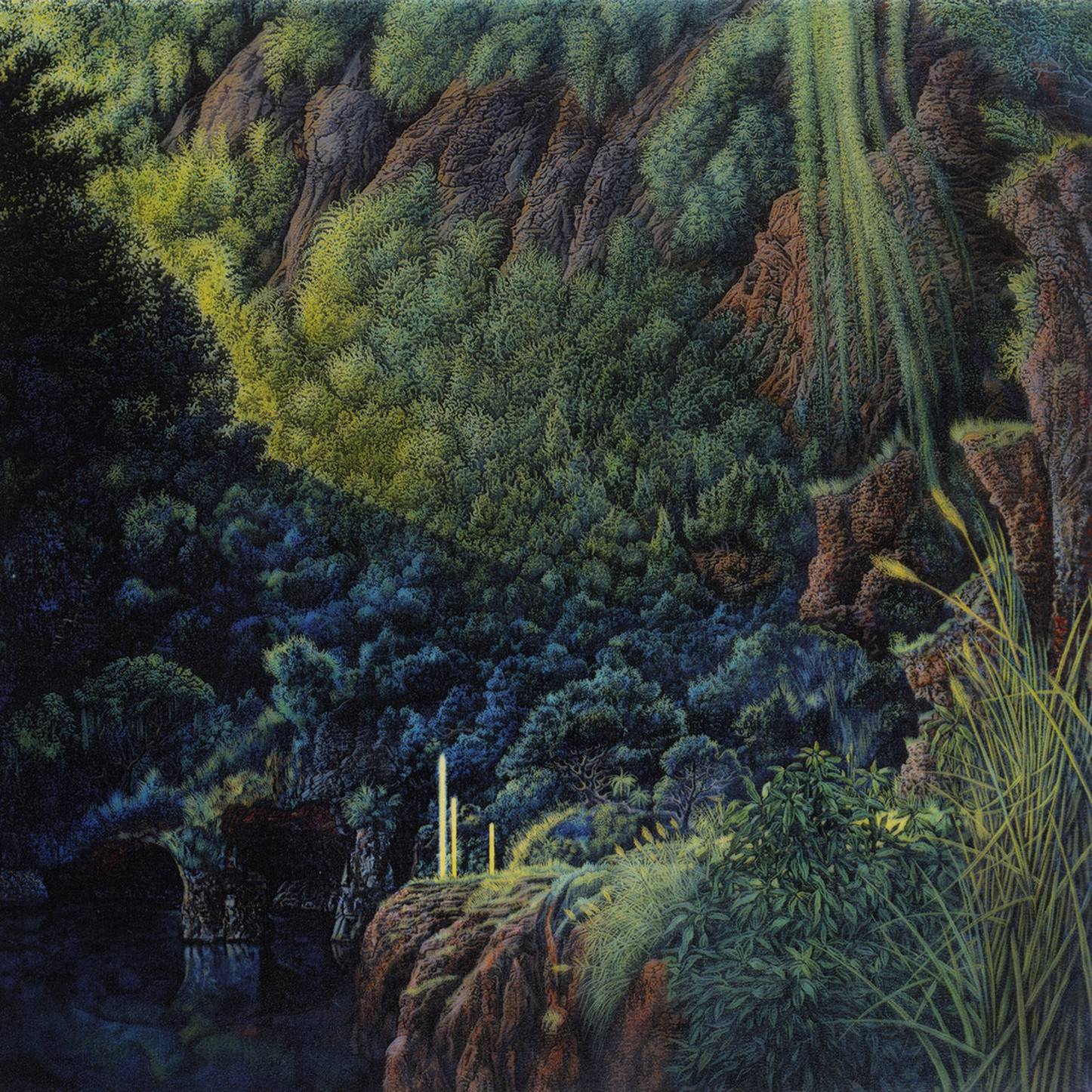Marina Herlop talks about how in the lead-up to her previous album’s release, being not in the brightest emotional place, she imagined herself as a gardener pulling purple weeds out of the soil. It was as if they were bad memories or emotions she wanted to banish. However, she still felt that her mental garden was withering little by little like the energy she put into the non-musical side of her life was poisoning her creative pasture. Therefore, Nekkuja grew from newly planted seeds that she tended gently. The release of this essentially pro-life album is especially metaphorical after the last one Pripyat, which was named after an uninhabited town in Northern Ukraine founded to host workers of the Chernobyl nuclear power plant and abandoned by everyone after the disaster in 1986.
For me, Pripyat was one of the main musical discoveries last year and it stirred up a lot of emotions in me, just like it apparently did for Björk who regularly puts singles from there into her DJ sets. However, after listening to Nekkuja I felt an even bigger emotional response. It is not because Marina's musical language has changed much, although all the compositions sound bigger and include more organic sounds. However, she became even more unapologetic and sincere in her creativity, and literally pulled out all the unnecessary weeds.
I had the opportunity to hear some of its compositions even before the album’s release at the Sonar Festival in Barcelona. Marina’s performance was very moving and without any flak as well. Those who had the pleasure of seeing Marina perform live know how she always elaborates her performances and costumes in the high-fashion Princess Leia style. However, on stage, she and her colleagues traditionally just play their instruments and sing without any special effects, which is quite rare to see at a festival today. It was also astonishing to see live how she and her fellow backup singers perfectly hold complex rhythms and crystal-clear harmonies.
What else I've always loved about Marina, and is especially noticeable in this album, is her ability to present experimental elements together with very groovy parts in an accessible and aesthetic way. For example, in “Al Hambra”, she skillfully combines groove and folk, and in “Cosset” we even dive into drum and bass at some point.
At the same time, those grooves and energy are perfectly neighboring with such compositions as “Karada”, which starts extremely intimate with a kind of harp sound. Vocal parts are processed in an unrealistic manner and remind some kind of fairytale creatures. However, later they find themselves surrounded by the natural sounds of birds like it is a magical forest.
The album is also full of already classic for Marina hyper-pop synthetic sounds, piano solos, and broken weird rhythms. It is also remarkable how smartly she quite often makes elements happening at the same time but all of them are still having their place.
The final composition “Babel” starts with an oriental instrument reminiscent of an oud and gradually reaches a climax in a chorus of strings. Here it seems even possible to make a pun and say that it's almost like Beethoven’s Oud to Joy. In fact, Nekkuja evokes a sense of light and warmth, so necessary for all of us, as winter is here.







Comments